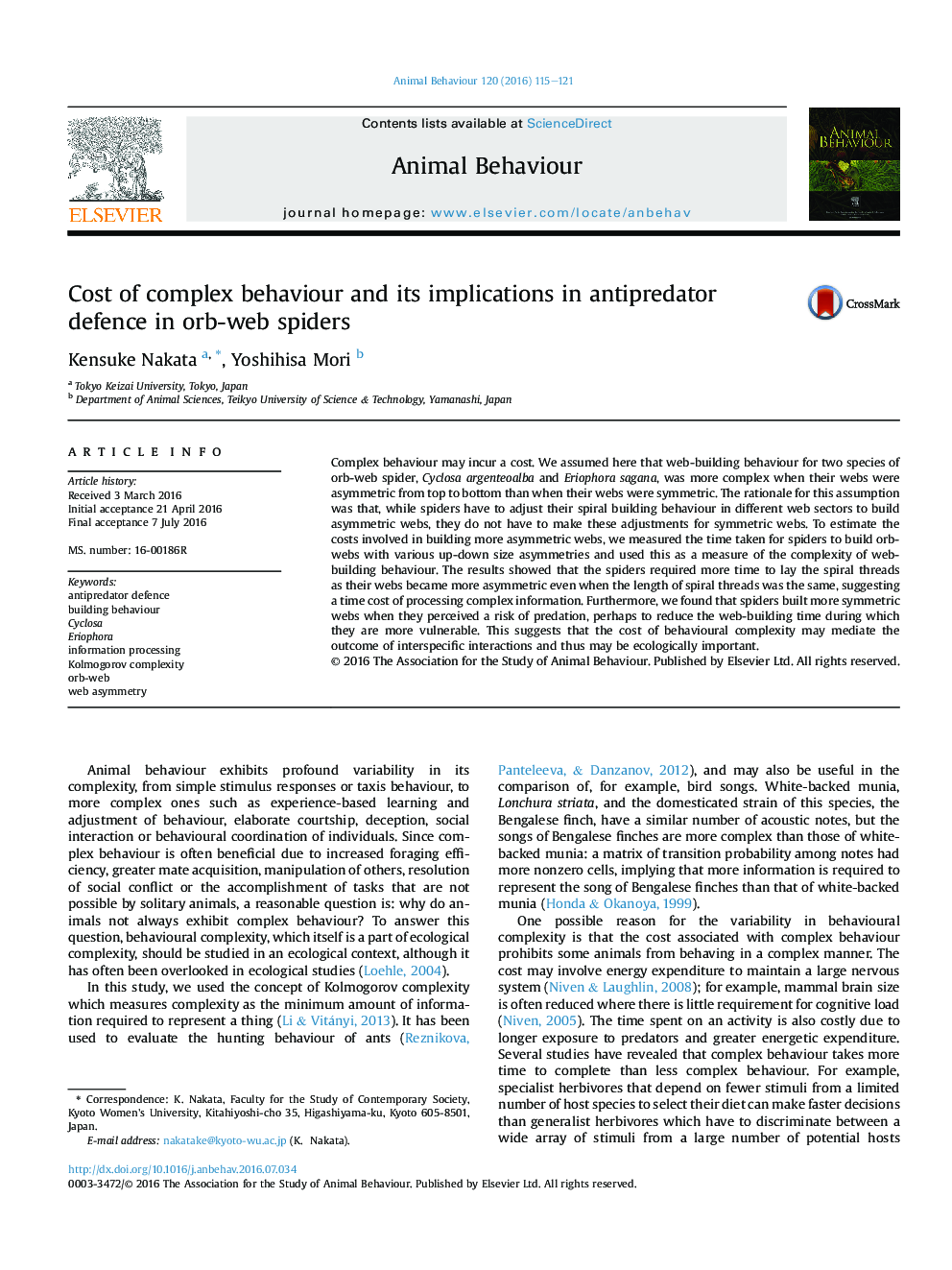| Article ID | Journal | Published Year | Pages | File Type |
|---|---|---|---|---|
| 2416219 | Animal Behaviour | 2016 | 7 Pages |
•We found time cost of complex behaviour in spider web building.•Thread-laying speed was lower in complex than simple webs.•We also found an ecological implication of complex behaviour.•Spiders built less complex webs after being exposed to predator stimuli.•Time cost of complex behaviour mediates food–safety trade-offs.
Complex behaviour may incur a cost. We assumed here that web-building behaviour for two species of orb-web spider, Cyclosa argenteoalba and Eriophora sagana, was more complex when their webs were asymmetric from top to bottom than when their webs were symmetric. The rationale for this assumption was that, while spiders have to adjust their spiral building behaviour in different web sectors to build asymmetric webs, they do not have to make these adjustments for symmetric webs. To estimate the costs involved in building more asymmetric webs, we measured the time taken for spiders to build orb-webs with various up-down size asymmetries and used this as a measure of the complexity of web-building behaviour. The results showed that the spiders required more time to lay the spiral threads as their webs became more asymmetric even when the length of spiral threads was the same, suggesting a time cost of processing complex information. Furthermore, we found that spiders built more symmetric webs when they perceived a risk of predation, perhaps to reduce the web-building time during which they are more vulnerable. This suggests that the cost of behavioural complexity may mediate the outcome of interspecific interactions and thus may be ecologically important.
